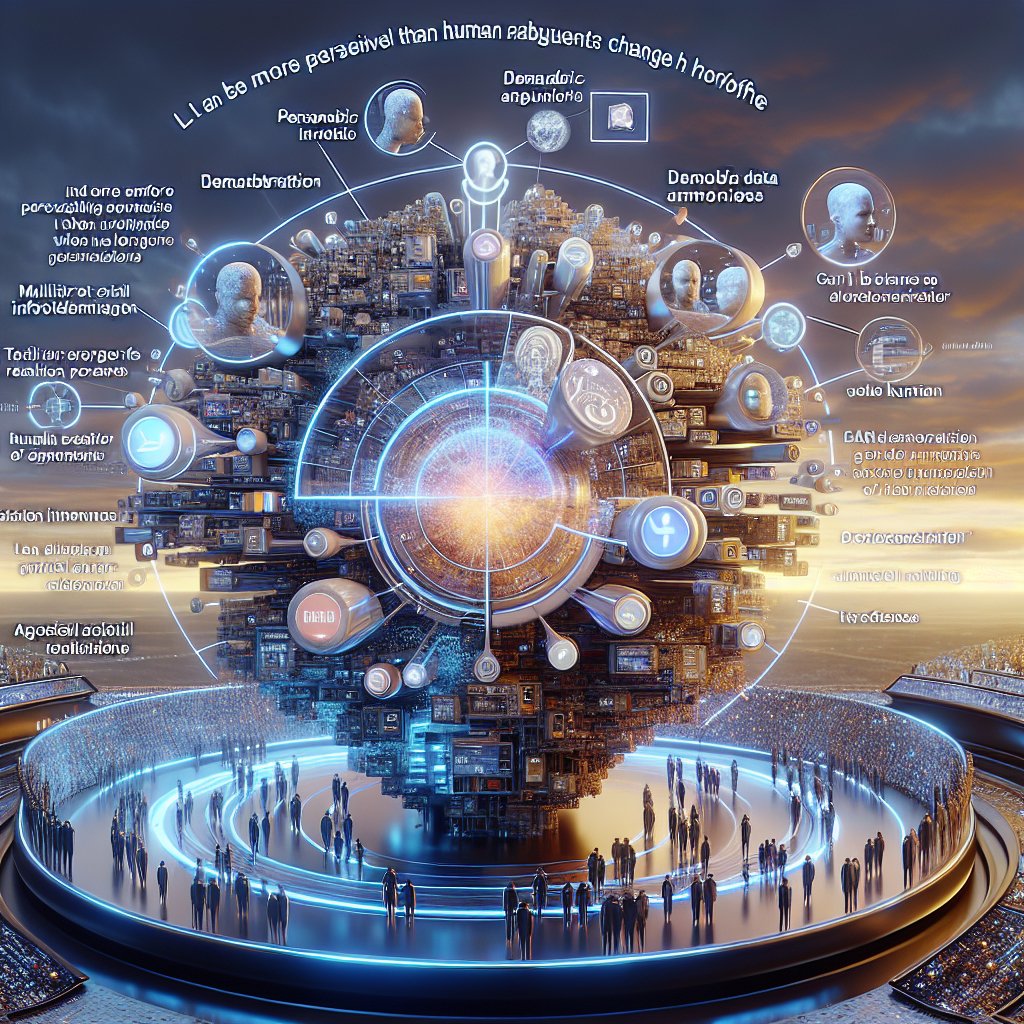Image created by AI
The Power of AI in Persuasion and Decision-Making: Navigating the Era of Enhanced LLMs
The potential impact of Large Language Models (LLMs) on our opinions and decision-making cannot be underestimated. As these AI models evolve, they are no longer confined to providing generic responses, but are now capable of tailoring arguments to alter our viewpoints remarkably, a recent study has confirmed. This advanced capability to persuade was tested and found to be more effective when LLMs, such as GPT-4, utilized personal information about individuals, which is readily available through social media platforms.
The study revealed that when provided with basic demographic data of participants, GPT-4 was significantly more persuasive than human debaters. The AI’s efficacy in changing opinions rose by 81.7% when arguments were personalized based on the individuals' background information. Interestingly, humans actually fared worse when armed with similar insights about their debate opponents, indicating that such knowledge may hinder rather than help human persuasiveness.
This is not just a concern of the future; the implications are immediate and pressing. With the integration of a "Tree of Thoughts" methodology, which allows multiple reasoning pathways, LLMs’ decision-making prowess is poised to see colossal improvements, as demonstrated by their heightened success rates in problem-solving games like Game of 24.
The conversation around LLMs touches on their potential weaponization in social contexts like elections. Bots could be programmed to disseminate propaganda on an unprecedented scale, changing the nature of digital warfare and information spreading. In response, there might be a necessity to develop countermeasures, including the creation of counter bots.
The narrative also extends to practical work scenarios where AI such as ChatGPT can automate tasks. By progressively allotting tasks to AI based on performance ratings, one can harness the power of AI in the workplace effectively. However, there is an accompanying learning curve, such as understanding prompt engineering, a skill being facilitated by resources like the OpenAI Cookbook.
As we explore and come to terms with the growing capabilities of AI in various spheres, including academia and professional development, it's evident that remaining informed and educated on AI usage is integral for success in the upcoming AI-centric era. This is why initiatives like Develop AI trainings, which include sessions on topics like data verification and data visualization, are essential for the next generation of professionals and researchers.
As AI steps into the limelight capable of swaying opinions and judgments, understanding its operations and ethical implications becomes indispensable. The era of enhanced LLMs is here, and it calls for critical engagement, vigilant application, and continual learning.










